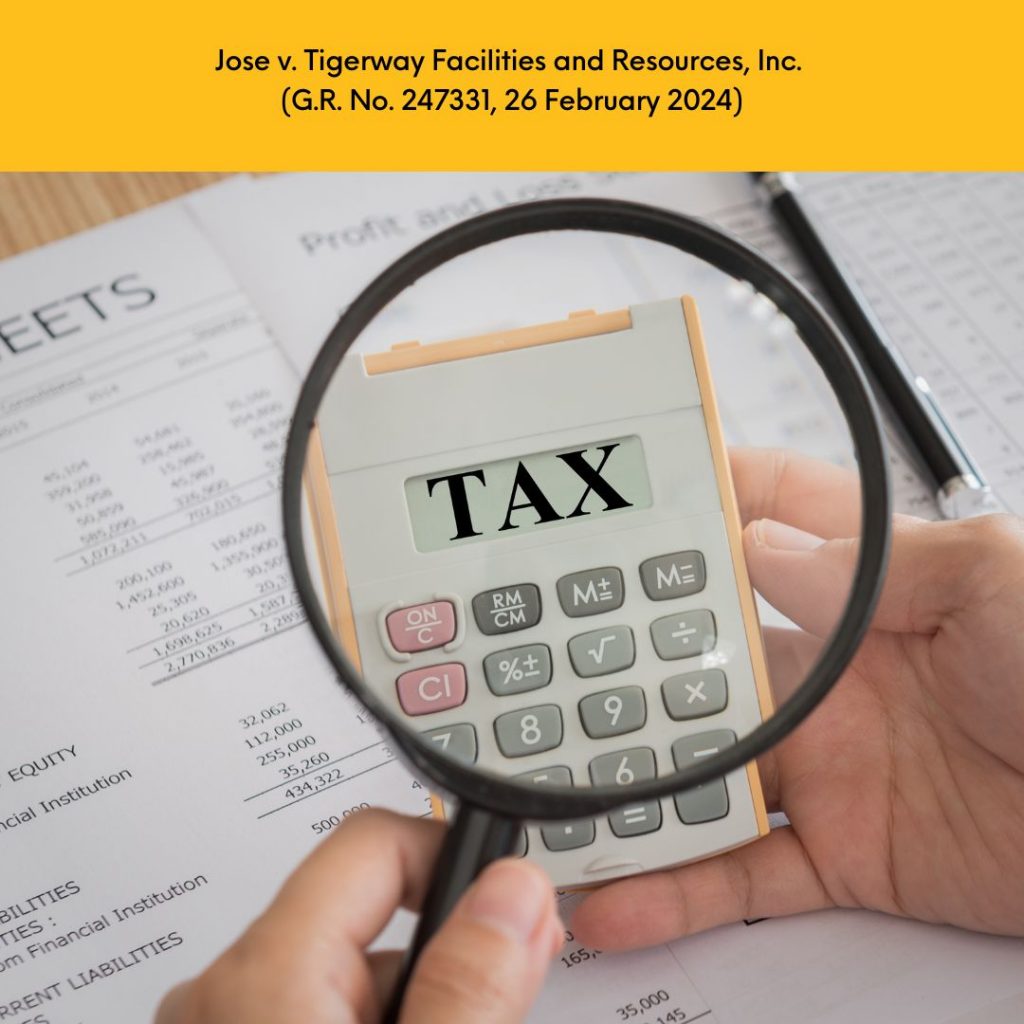
Published 31 March 2025, The Daily Tribune
Sections 195 (Protest of Assessment) and 196 (Claim for Refund of Tax Credit) of the Local Government Code (LGC) provide avenues for obtaining refunds of local taxes.
Section 195 provides that within sixty (60) days from the receipt of the notice of assessment, the taxpayer may file a written protest against the notice of assessment. In case the taxpayer paid in protest, its refund is a necessary consequence should the protest be meritorious. Section 196, on the other hand, grants the taxpayer two (2) years to file both the administrative and judicial claim of refund.
Jurisprudence has already settled that where a notice of assessment is issued, the taxpayer cannot choose to pay the assessment and thereafter seek a refund at any time within the full period of two (2) years as Section 196 may suggest. If refund is pursued, the taxpayer must administratively question the validity or correctness of the notice assessment within sixty (60) days from receipt thereof. Otherwise, the notice of assessment becomes final and executory.
Would the same rule apply when the assessment is invalid? This was answered by the Supreme Court in the case of Jose v. Tigerway Facilities and Resources, Inc. (G.R. No. 247331, 26 February 2024).
In the case, during its application for a business permit, the taxpayer was assessed for deficiency local and business taxes which it promptly settled. The taxpayer, however, was again assessed for deficiency local and business taxes due to findings from an alleged ocular inspection conducted at its premises. Ultimately, the assessment led to the issuance of Order of Payment on 29 December 2005 calling for payment of deficiency business taxes. The taxpayer settled such Order of Payment on the same date.
On 27 December 2007, the taxpayer filed a written claim for refund or credit to the City Treasurer, asserting that the additional assessment lacked factual and legal basis. On the next day, the taxpayer commenced a judicial claim for refund under Section 196 of the LGC. The claim for refund was opposed on the ground that the same was filed out of time as the taxpayer failed to file a protest against the Order of Payment dated 29 December 2009 within sixty (60) days from receipt thereof.
The lower courts find the assessment invalid for failing to state the factual and legal basis. The Honorable Supreme Court upheld the rulings of the lower courts in favor of the taxpayer. It was held that in seeking a refund through Section 195 of the LGC, it is essential that the assessment notice from the local treasurer contains the factual and legal basis of the assessment. Without such, there would be no tax assessment to contest. As a result, the provisions of Section 196 of the LGC would apply. As the taxpayer was able to file its administrative and judicial claims for refund within two (2) years from the payment of the additional assessment, such was filed within the prescribed period.
The High Court further emphasized that assessments without factual and legal basis are violative of the taxpayers’ right to due process and, therefore, are null and void and of no force and effect.
For more of Dean Nilo Divina’s legal tidbits, please visit www.divinalaw.com. For comments and questions, please send an email to cad@divinalaw.com.

